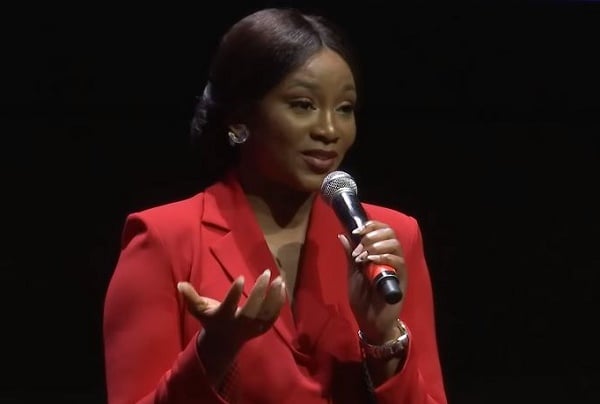Genevieve Nnaji, the Nigerian actress, has revealed why she turned down opportunities to join Hollywood.
Nnaji was a panelist at the 2024 AfriCaribbean Trade and Investment Forum/Afreximbank annual meetings held recently in Nassau, the Bahamas.
During her session, the actress said her passion for putting Nollywood on the global map made her refuse a Hollywood opportunity.
“I could have gone to Hollywood a long time if I wanted to, but I had a dream to build an industry in Nigeria that could drive home,” she said.
“Because I always believed in that. I always knew that we were capable of actually owning an industry like that that told our story for our people.”
Nnaji also opened up about her experiences while seeking partnerships in Hollywood following the success of her 2018 film, ‘LionHeart’.
The film star said she realised she was viewed as a commodity by stakeholders in Hollywood who were only keen to exploit her talent for their benefit.
“For the first time, I realised I was a commodity. I thought, you know, given what I had done with Lionheart, and all of that, I was going to have an opportunity to do more,” she said.
“Getting there and having the kind of support that obviously CANEX is bringing on board, but I thought I could find it in Hollywood. That was not quite the case.
“They wanted what I had but for their benefit. It was all about their story. It was all about how, even if it was our story, I could make it more authentic to their own understanding of whatever Africa is because they did have a lot of literature in their archives.”
Nnaji began acting at the age of eight — in the popular television soap opera ‘Ripples’.
She has since starred in numerous films including ‘Blood Sisters’, ‘Ije’, ‘Mirror Boy’, and ‘Road to Yesterday’.
Nnaji owns a production company called The Entertainment Network (TEN).
In September 2018, she made history with ‘Lionheart’, her directorial debut, which became the first Netflix original film from Nigeria and the country’s first submission for the Oscars.
However, the movie was disqualified for having most of its dialogue in English.
Copyright 2025 TheCable. All rights reserved. This material, and other digital content on this website, may not be reproduced, published, broadcast, rewritten or redistributed in whole or in part without prior express written permission from TheCable.
Follow us on twitter @Thecablestyle

